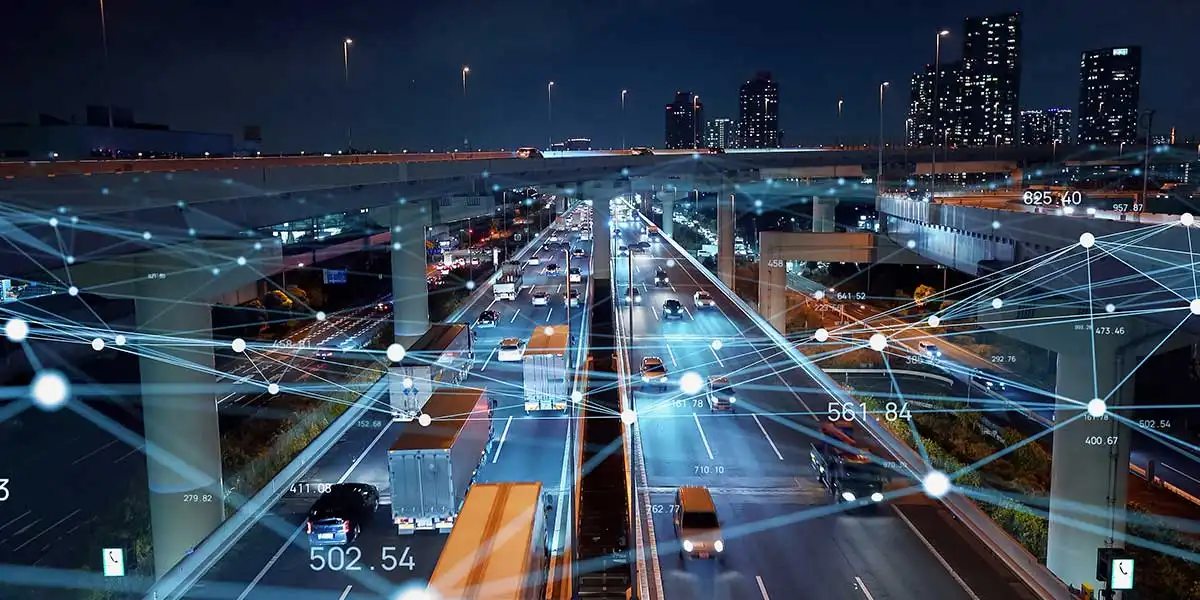
May 29, 2024
Blog Digital World How Smart Sensors Driving the Industry Towards Growth
Sensors are like tiny but tough gadgets that measure stuff around them, like pressure, temperature, and more. They're super important because they give us accurate info that helps keep machines and devices working perfectly.
The sensor industry is rapidly growing, with the market expanding due to increasing demand across various sectors. This growth is reflected in the rising market share and size, driven by the need for more advanced and numerous sensors in technology, healthcare, automotive, and industrial applications. Overall, the sensor market is booming as these devices become crucial for automation, data collection, and smart technologies.
IoT Integration- Smart sensors are combined with the Internet of Things (IoT), which means they can share data instantly and connect with other devices. This makes manufacturing smarter, improves how things are watched over, and helps predict when maintenance is needed.
AI-driven Sensors- Artificial Intelligence (AI) is making smart sensors smarter and better at making tough decisions.
These AI-powered sensors can understand data right where it's collected, so they don't always need to be connected to a network. This means they can react faster to any changes they detect.
Energy-Efficient Designs- Recent advancements in sensor tech are all about using less power, which is super important for keeping things sustainable.
These energy-saving sensors can work in far-off places, running on things like solar power or batteries, and they last longer too.
Enhanced Connectivity Options- Thanks to improvements in wireless tech, like 5G, sensors can now chat over longer distances and send more data.
This means sensors can be used in all sorts of places, whether it's a busy city or out in the countryside.
Improved Sensor Accuracy and Sensitivity- Scientists are constantly working on making sensors better at picking up even the tiniest changes.
This is super important for things like medical tests and keeping an eye on the environment.
The global market for sensors is estimated to increase from $179.7 billion in 2023 to reach $300.5 billion by 2029, at a compound annual growth rate (CAGR) of 8.9% from 2024 through 2029.
Sensors have transformed our world by making things smarter and more efficient. They help doctors diagnose and monitor health, keep our environment clean, make factories run smoothly, and improve our daily lives with smart gadgets. Sensors also make cars safer, assist in farming, and enhance security. Essentially, sensors collect important information that helps us make better decisions, stay safe, and live more conveniently.
The need for small, contactless sensors is growing fast, and this trend is here to stay because of the increasing demand for automation and data-driven decisions. According to Springer, these sensors are growing quickly. This growth is driven by advancements in technology and research, the expanding use of the Internet of Things (IoT) across all industries, and the rising adoption of AI and machine learning.
In recent years, sensor technology has transformed how companies and manufacturers work, thanks to the Internet of Things (IoT). Smart sensors improve connectivity, automation, and data analysis in workflows and business processes. They enhance visibility in operations by tracking and identifying objects and their conditions. For instance, in industrial IoT settings, sensors monitor temperature and humidity, trigger alarms in warehouses, and log data for quality management.
In 2019, they made $9.56 billion in revenue. In 2020, they teamed up with TSMC to develop Gallium Nitride technology. Earlier, in 2016, they partnered with Valencell to create advanced biometric sensors for wearables and IoT devices.
In 2019, their revenue was $8.88 billion. In January 2019, they partnered with Momenta to develop driver monitoring systems for cars. In May 2018, they teamed up with Tata Consultancy Services to create applications for automotive, security, and IoT sectors.
In March 2017, they acquired Linear Technology for $14.8 billion to enhance their sensor business. In 2019, they made nearly $6 billion in sales.
In 2018, they made nearly $41.80 billion in revenue, a 3.13% increase from the previous year. In July 2016, they bought Intelligrated for $1.5 billion in cash to expand their sensor product range.
In 2019, Sensirion earned $177.75 million, with 30% from their automotive business. In September 2017, they acquired Auto Industrial Co.'s automotive division, which makes sensors for auto defogging, air quality, and CO2, boosting their automotive sensor business.
Sensors are vital for most tech products today, from basic home appliances to advanced manufacturing systems. Miniaturization is now common in all systems, thanks to microtechnology. Industries need more sensors, especially in automotive safety. Flexible sensors are in high demand because they're stretchable, affordable, and adaptable. They're used in prosthetics, aerospace, healthcare, robotics, and more. Asia-Pacific, especially India, is becoming a major sensor hub. Investments in research are driving new technologies like MEMS, nanotech, and 3D printing, expanding the sensor market.
Consider becoming a member of the BCC Research library and gain access to our full catalog of market research reports in your industry. Not seeing what you are looking for? We offer custom solutions too, including our new product line: Custom Intelligence Services.
Contact us today to find out more.

Divya Dhamija is a Senior Executive of Marketing Operations at BCC Research, with a master’s degree in business. She specializes in optimizing marketing strategies and content creation and is dedicated to driving organizational growth through strategic marketing initiatives.

From smartphones to satellites, antennas play a vital role in enabling the seaml...

Introduction Artificial Intelligence (AI) and the Internet of Things (IoT) are r...

We are your trusted research partner, providing actionable insights and custom consulting across life sciences, advanced materials, and technology. Allow BCC Research to nurture your smartest business decisions today, tomorrow, and beyond.
Contact UsBCC Research provides objective, unbiased measurement and assessment of market opportunities with detailed market research reports. Our experienced industry analysts assess growth opportunities, market sizing, technologies, applications, supply chains and companies with the singular goal of helping you make informed business decisions, free of noise and hype.